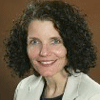Fulbright Scholar
Transforming a System: Shifting Faculty and Institutional Roles in Partnership
 Dr. Pamela Eddy, Associate Professor spent last spring semester in Ireland on a Fulbright fellowship. Her research project was titled Transforming a System: Shifting Faculty and Institutional Roles in Partnership. The case sites were colleges, universities, and organizations who received funding from Ireland's Higher Education Authority (HEA) to conduct collaborative research projects. The intention of Eddy's study was to determine how the partnership process operated, in particular to understand how institutional policies were altered or new jointly created policies created. Additionally, she sought to understand how faculty roles shifted as a result of the partnerships. Each of the four HEA funding cycles had a specific intention for the partnerships and each subsequent funding cycle reinforced the role of collaborations and efficiencies. Two basic goals were to increase research activities at universities and colleges in Ireland and to increase the number of PhD students in the country. Case sites were selected to illustrate both of these goals.
Dr. Pamela Eddy, Associate Professor spent last spring semester in Ireland on a Fulbright fellowship. Her research project was titled Transforming a System: Shifting Faculty and Institutional Roles in Partnership. The case sites were colleges, universities, and organizations who received funding from Ireland's Higher Education Authority (HEA) to conduct collaborative research projects. The intention of Eddy's study was to determine how the partnership process operated, in particular to understand how institutional policies were altered or new jointly created policies created. Additionally, she sought to understand how faculty roles shifted as a result of the partnerships. Each of the four HEA funding cycles had a specific intention for the partnerships and each subsequent funding cycle reinforced the role of collaborations and efficiencies. Two basic goals were to increase research activities at universities and colleges in Ireland and to increase the number of PhD students in the country. Case sites were selected to illustrate both of these goals.
Initial analysis underscores the role of a champion of the partnership. Individuals were often pivotal in negotiating partnership agreements and in resolving conflicts. Motivations for participation made a difference in how each of the partners approached the collaboration - those with similar visions and goals operating the best. On the other hand, those partnering with an overarching goal of obtaining funding alone were more fraught with dissention and conflict.
Clearly articulated partnership goals based on like interests resulted in a more cohesive group. The social capital of the champion and the partnership representatives made a difference in negotiations of activities. In particular, access to institutional resources and the support of college leaders resulted in stronger partnerships. Context mattered with difficulties occurring when external pressures mounted. Divided loyalties among the partners, the institutions, and the discipline created tensions. The research pointed to actions for policy makers, institutional leaders, and faculty partners to better sustain partnerships.
In addition to this policy research, Dr. Eddy conducted a study on faculty from the United States who taught in Irish universities and Irish scholars who taught in US colleges. The goal of this research was to understand how teaching and learning practices were challenged and altered based on the educational system of the two countries. Findings highlight how the faculty had transformational learning occur as they challenged their initial assumptions of how to teach. Faculty members came away from their international teaching exchanges with new practices for their classrooms, increased networks with other faculty, and a new perspective on what it means to be a classroom teacher. Instead of being an expert in the classroom, they again became novice teachers as they had to understand a new system of higher education and student expectations. Their experiences resulted in them taking away a new appreciation for the craft of teaching and becoming more reflective of their teaching. The call for faculty to help college students obtain global competencies was aided by these international teaching exchanges. These faculty members were now providing international perspectives in their classrooms, questioning assumptions on what was considered core knowledge, and pushing students to consider other contexts for their on learning.
Dr. Eddy reflected on another benefit of her Fulbright at DIT. Eddy noted, "My 17 year-old daughter was able to join me in Dublin. She attended Wesley College as a fifth year student and was able to make a number of new friends here, explore new areas of interest, and to learn about another country. A highlight for her was a biology trip to the Burren to conduct field research. Her English teacher took a great interest in her writing and encouraged her to submit a short story to a writing contest. She was also able to participate in Model United Nations and perhaps her most unique experience resulted from her team membership on the cricket team! Clearly, this was a learning experience for her."
The Fulbright office arranged for a trip to Northern Ireland that Dr. Eddy noted as a highlight of her time in Ireland. The Fulbright Scholars were able to meet with members of the police force, members of the Patton Peace commission and individuals involved in the peace movement. Dr. Eddy stated, "The insights from this trip illustrated more powerfully the Troubles than any amount of reading could. We were also able to visit different groups engaged in the Irish language revival and to see this aspect of the culture. My time in Ireland has been transformational and life changing. I am already looking forward to my next visit to the country and to hosting some of my Irish colleagues in America." Since her return to Williamsburg, Dr. Eddy arranged for a series of seminars by Dr. Darren Kelly, an Irish Fulbright Scholar now working at St. Patrick's College in Dublin.